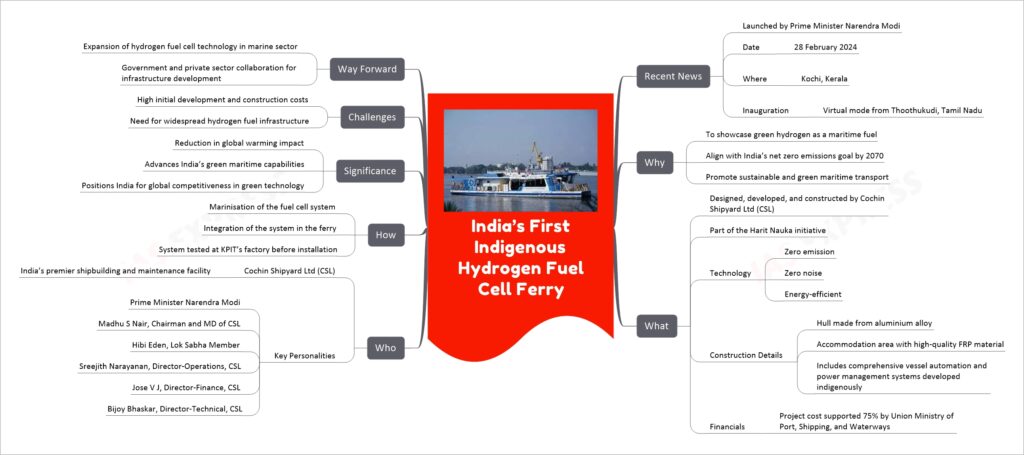India’s First Indigenous Hydrogen Fuel Cell Ferry

The launch of India’s first indigenously developed hydrogen fuel cell ferry marks a significant step towards sustainable and green maritime transport. Prime Minister Narendra Modi inaugurated this zero-emission and zero-noise vessel on 28 February 2024, in Kochi, Kerala, through a virtual ceremony from Thoothukudi, Tamil Nadu. This project, designed, developed, and constructed by Cochin Shipyard Ltd (CSL) under the Harit Nauka initiative, showcases the potential of green hydrogen as a maritime fuel, aligning with India’s commitment to achieving net zero emissions by 2070.
The ferry, which has its hull made from aluminium alloy and an accommodation area constructed with high-quality FRP material similar to metro train coaches, represents a pioneering initiative in India’s maritime sector. It’s equipped with a comprehensive vessel automation and power management system developed indigenously. The project, with 75% of its cost supported by the Union Ministry of Port, Shipping, and Waterways, is a testament to India’s growing capabilities in green technology and its ambition to lead in the global transition towards sustainable energy sources.
This development not only contributes to the reduction of global warming impacts but also positions India at the forefront of adopting green hydrogen technology in the maritime sector, offering a competitive advantage on the global stage. However, challenges such as high initial costs and the need for a widespread hydrogen fuel infrastructure need to be addressed. Moving forward, the expansion of hydrogen fuel cell technology in marine applications and collaboration between the government and the private sector for infrastructure development will be crucial for realizing the full potential of this initiative
If you like this post, please share your feedback in the comments section below so that we will upload more posts like this.

